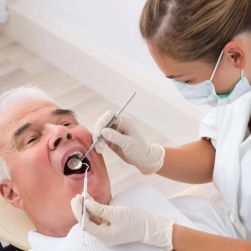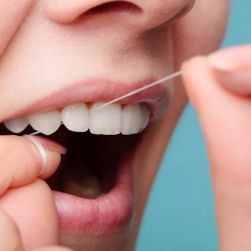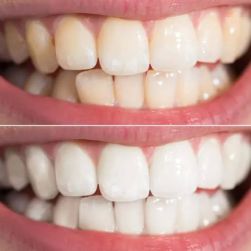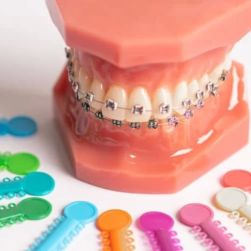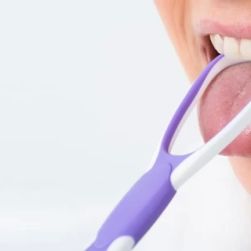Foods That Keep Seniors’ Teeth Healthy and Strong
As we age, our bodies change in many ways, and our teeth are no exception. Over the years, I’ve learned how important it is to take care of my teeth, not just through brushing and flossing, but also by paying attention to what I eat. Healthy teeth aren’t just about avoiding cavities; they’re also about maintaining strong gums and preventing other dental issues. In my experience, the food choices we make can significantly affect the health of our teeth, especially as we get older. So, if you want to ensure that your smile stays healthy in your golden years, let’s dive into some of the best foods for seniors to maintain healthy teeth.
1. Dairy Products: The Building Blocks for Strong Teeth
One of the first things I learned about maintaining strong teeth as I got older is the importance of calcium. Dairy products like milk, cheese, and yogurt are rich in calcium, which is essential for keeping teeth and bones strong. As we age, calcium absorption becomes more challenging, so it’s crucial to include these foods in your daily diet. I noticed that after adding a bit more cheese or a cup of yogurt to my meals, my teeth felt more stable, and I was less sensitive to hot or cold foods.
Calcium works by strengthening the enamel—the hard outer layer of your teeth. Enamel is what protects your teeth from decay, and without it, our teeth become vulnerable. Dairy products also contain phosphorus, which helps the body use calcium more effectively. So, if you’re aiming to boost your dental health, make sure to include dairy in your meals. If you’re lactose intolerant, there are many non-dairy alternatives like almond milk or fortified plant-based yogurts that also provide calcium.
2. Crunchy Vegetables: Nature's Toothbrush
As I started focusing on my oral health, I also noticed how certain crunchy vegetables worked wonders for my teeth. Vegetables like carrots, celery, and cucumbers act almost like a natural toothbrush. When I chew on these raw veggies, they help scrub away plaque and food particles from my teeth, preventing buildup that could lead to cavities or gum disease. Plus, these veggies are rich in fiber, which helps stimulate saliva production. Saliva is vital because it neutralizes acids in the mouth and helps wash away food particles.
Carrots, in particular, are high in vitamin A, which is crucial for maintaining the health of your gums and soft tissues in your mouth. Fiber-rich foods like celery can also massage the gums as you chew, which promotes better circulation and helps prevent gum recession. Adding these vegetables to your diet is an easy and effective way to maintain dental health, especially if you enjoy snacking throughout the day.
3. Leafy Greens: The Power of Vitamin C and Iron
It wasn’t until I started paying more attention to my gum health that I realized how important leafy greens are for seniors. Greens like spinach, kale, and Swiss chard are packed with essential vitamins and minerals, including vitamin C and iron. Vitamin C is particularly important for preventing gum disease, which is a common problem for older adults. It helps strengthen blood vessels and helps the body fight infections, including gum infections.
Iron, which is abundant in dark leafy greens, is crucial for maintaining overall oral health as it supports blood circulation to the gums. Without proper blood flow, gums can become inflamed, leading to bleeding or even tooth loss. I began incorporating more leafy greens into my meals by adding them to salads, smoothies, and even as side dishes. These greens don’t just support healthy gums—they also provide a variety of other health benefits like improving bone health and boosting immunity.
4. Apples: The Natural Teeth Cleanser
One of my favorite go-to snacks for dental health is apples. I’ve always loved the refreshing crunch, but I didn’t realize until recently how much of an impact apples can have on my oral hygiene. Apples are naturally high in water content and fiber, making them an excellent food choice for keeping teeth clean. As I bite into an apple, the fibrous texture gently scrubs the surfaces of my teeth, removing food particles and plaque buildup. The high water content also helps rinse the mouth and promotes saliva production.
Additionally, apples are rich in antioxidants, which can help reduce inflammation in the gums and promote overall oral health. Vitamin C in apples also contributes to healthy gums by stimulating collagen production, which supports gum tissue. Apples are the perfect balance of healthy sweetness and tooth-cleaning properties. I often enjoy one after meals as a natural way to freshen my breath and care for my teeth.
5. Green Tea: A Sip of Oral Health Benefits
When I first started drinking green tea, I didn’t know it was doing wonders for my oral health. Green tea contains antioxidants called catechins, which help reduce inflammation and fight bacteria in the mouth. This can significantly reduce the risk of gum disease and tooth decay. I’ve noticed that my gums feel healthier, and my breath is fresher when I consistently enjoy a cup of green tea each day.
Green tea also contains fluoride, which is essential for strengthening tooth enamel and preventing cavities. Unlike sugary drinks like soda, which can contribute to tooth decay, green tea is a great way to hydrate while supporting your oral health. I like to drink a cup of green tea in the morning or after meals to enjoy the calming effects and oral health benefits it provides.
6. Nuts and Seeds: Boosting Oral Health with Healthy Fats
In my quest to keep my teeth strong as I aged, I began incorporating more nuts and seeds into my diet. Almonds, walnuts, sunflower seeds, and flaxseeds are packed with healthy fats and minerals that contribute to overall oral health. Almonds, for instance, are high in calcium and vitamin E, both of which help maintain the strength of your teeth and gums. Walnuts contain omega-3 fatty acids, which have anti-inflammatory properties that support healthy gums.
Nuts and seeds are also great sources of protein, which helps repair damaged tissues in the mouth, including gums. They’re a perfect snack to munch on between meals, and I love adding them to salads, smoothies, or just eating them plain. The best part is that they’re easy to incorporate into any diet, and they promote long-lasting oral health as you age.
7. Water: The Unsung Hero of Oral Health
Although water isn’t technically a food, I can’t stress enough how important it is to drink plenty of water throughout the day to keep your teeth and gums healthy. Water helps rinse away food particles and bacteria, preventing plaque buildup that could lead to cavities or gum disease. It also promotes saliva production, which is key to neutralizing acids in the mouth and keeping the oral environment balanced.
Over the years, I’ve made it a habit to drink water after every meal and throughout the day. It’s an easy, inexpensive way to maintain oral health, and it complements all the other foods I eat to support my teeth. Whether it’s plain water, or water infused with a slice of lemon or cucumber, I always make sure to stay hydrated to support my oral hygiene routine.

